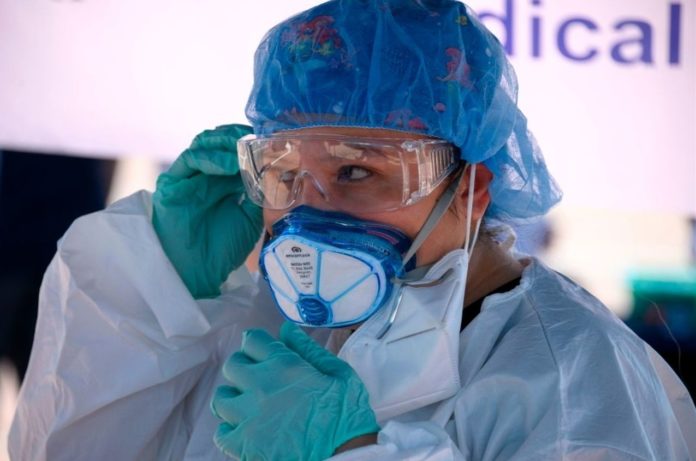Scientists from the Fred Hutchinson Cancer Research Center, Johns Hopkins Bloomberg School of Medicine, the United States Military HIV Research Program, and the University of North Carolina’s Institute for Global Health and Infectious Diseases urged to offer increased attention to people with persistent COVID-19 infections in as they may give rise to deadly variants of concern.
“The medical community needs to develop more precise guidelines for monitoring, treating and preventing COVID-19 infections in immunosuppressed patients to reduce both the risk to these patients and the potential emergence of variants of concern,” said Dr. Larry Corey, virologist at Fred Hutch, leader of the COVID-19 Prevention Network and corresponding author of the article.
- Scientists in Fear of This New Predator From Red Sea Eating Native Species in Mediterranean
- Does This Mean We Stopped Being Animal and Started Being Human Due to ‘Copy Paste’ Errors?
- The One Lifestyle Choice That Could Reduce Your Heart Disease Risk By More Than 22%
- Aging: This Is What Happens Inside Your Body Right After Exercise
- Immune-Boosting Drink that Mimics Fasting to Reduce Fat – Scientists ‘Were Surprised’ By New Findings
The authors emphasised, in the New England Journal of Medicine article, the importance of vaccinating immunosuppressed patients, as well as considering the use of prophylactic monoclonal antibodies to prevent infection in those who have had an inadequate response to vaccines.
They recommended that healthcare providers closely monitor immunocompromised patients with persistent COVID-19 infections, using sequential samples to detect long-term COVID-19 infections and the emergence of new variants of concern.
They wrote that the partial immune response seen in immunocompromised people creates a unique environment for immune selection of evolutionary variants, which is concerning.
“The virus can persist for weeks or months in immunocompromised individuals, leading to viruses that carry a constellation of mutations – they sometimes look like the variants of concern that are currently threatening to our control efforts,” said Dr Morgane Rolland, a viral geneticist with the U.S. Military HIV Research Program at Walter Reed Army Institute of Research and senior author of the article.
The authors recommend that immunocompromised people be informed about the risk of prolonged viral shedding if they are infected with SARS-CoV-2 and the importance of self-isolation until they receive a negative test. Prioritizing vaccination in these groups and their households is critical, but global access to highly effective COVID-19 vaccines is required to meet this demand.
The authors also advocated for more specialized research in immunocompromised individuals. Immunologic studies in people with weakened immune systems, such as solid organ transplant recipients, may be able to help healthcare providers prevent severe and long-term COVID-19 in these people. Understanding immunocompromised people’s antibody and T-cell responses may provide insight into why they have a weakened antibody response to the virus’s spike protein.
“A very large number of patients have difficulty mounting a defense against COVID-19 and will benefit greatly from ongoing and focused efforts to develop more robust COVID-19 treatment and prevention strategies,” commented Dr Myron Cohen, associate vice chancellor for Global Health and Medical Affairs at the University of North Carolina and co-author of the article.
- Scientists in Fear of This New Predator From Red Sea Eating Native Species in Mediterranean
- Does This Mean We Stopped Being Animal and Started Being Human Due to ‘Copy Paste’ Errors?
- The One Lifestyle Choice That Could Reduce Your Heart Disease Risk By More Than 22%
- Aging: This Is What Happens Inside Your Body Right After Exercise
- Immune-Boosting Drink that Mimics Fasting to Reduce Fat – Scientists ‘Were Surprised’ By New Findings
The authors advocate for increased momentum in the development of new COVID-19 vaccines and treatments in the future. To control the pandemic, efforts will be needed to develop next-generation vaccines that are more effective against variants, test antibody combinations that can prevent infection in immunocompromised people, and advance treatments that can stop viral replication, particularly in these vulnerable populations.
Photo by ROBYN BECK/AFP via Getty Images
